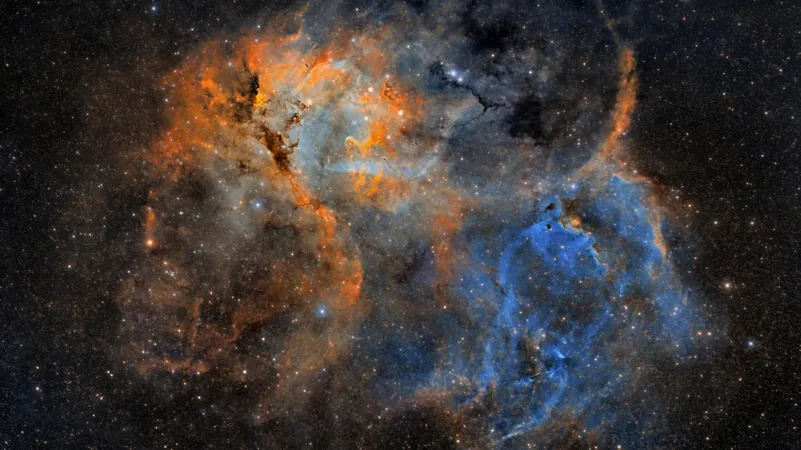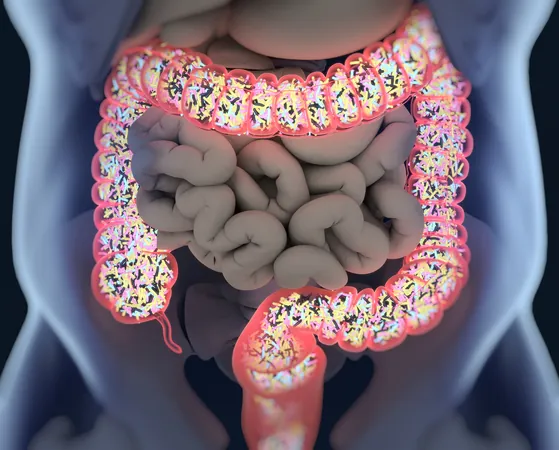
What Does Space Really Smell Like? The Surprising Scents Revealed by Astronauts and Science!
2025-09-14
Author: Li
Ever Wondered What Space Smells Like?
Space, often thought of as a barren void, surprisingly holds a range of scents, despite being a near-perfect vacuum with no air to carry odors as we know them on Earth. Yet, astronauts returning from spacewalks have reported unique and intriguing smells. So, how is this possible?
The Chemistry Behind Space Scents
Astronauts describe a variety of aromas after their excursions, including burnt steak, hot metal, and even welding fumes. For example, NASA astronaut Don Pettit likened it to "pleasant sweet-smelling welding fumes." During the Apollo missions, astronauts reported that lunar dust had an uncanny resemblance to the smell of gunpowder—a phenomenon shared by Apollo 17 astronaut Harrison "Jack" Schmitt. These observations are not just whimsical; they offer essential clues to the chemical makeup of our universe.
The scents experienced by astronauts arise from atomic oxygen interacting with materials in their spacesuits. This reaction can create metallic odors during the repressurization process. Meanwhile, lunar dust’s unique aroma is thought to originate from reactive molecules caused by meteoroid impacts when combined with the cabin air, leading to that recognizable gunpowder scent.
Scented Comets? Yes, Indeed!
Thanks to the European Space Agency’s Rosetta mission, scientists have been able to analyze the olfactory signature of comet 67P/Churyumov-Gerasimenko. Measurements revealed a bizarre mix of scents, including rotten eggs (hydrogen sulfide), horse stable (ammonia), and even a hint of formaldehyde. Essentially, this comet offers a ‘perfume’ cocktail that reflects the primitive building blocks of our solar system.
Mars: The Whiff of Sulfur
Mars has captivated us not only due to its landscape but also due to its potential scent. Analyzing Martian soil has suggested an aroma rich in sulfur, which could evoke memories of rotten eggs. Although current findings from instruments like the ExoMars Trace Gas Orbiter hint that sulfur compounds might not be prevalent in the Martian atmosphere, it could still linger subtly in local areas.
Titan: A Hydrocarbon Wonderland
Saturn's moon Titan is like a cosmic oil field, brimming with hydrocarbons like methane and ethane. This makes Titan smell akin to gasoline. The Cassini-Huygens mission confirmed the lake systems on Titan are reminiscent of Earth’s but with a hydrocarbon twist. Although methane itself is odorless, the presence of other heavier hydrocarbons could generate that familiar tang of petroleum in the air.
Scenting the Milky Way
Deep in the Milky Way lies Sagittarius B2, a molecular cloud filled with complex organic molecules, including ethyl formate, which resembles the aroma of raspberries—and it also smells like rum. However, this scent is far too faint for human noses to detect; instead, it emphasizes the intricate chemistry present in the cosmos.
Space smells might seem like a curiosity, but they are a gateway into understanding planetary chemistries and the very fabric of our universe. From the burnt aromas of lunar dust to the rich scents of comets, our exploration of these otherworldly olfactory sensations continues to expand our fascination with the cosmos.





 Brasil (PT)
Brasil (PT)
 Canada (EN)
Canada (EN)
 Chile (ES)
Chile (ES)
 Česko (CS)
Česko (CS)
 대한민국 (KO)
대한민국 (KO)
 España (ES)
España (ES)
 France (FR)
France (FR)
 Hong Kong (EN)
Hong Kong (EN)
 Italia (IT)
Italia (IT)
 日本 (JA)
日本 (JA)
 Magyarország (HU)
Magyarország (HU)
 Norge (NO)
Norge (NO)
 Polska (PL)
Polska (PL)
 Schweiz (DE)
Schweiz (DE)
 Singapore (EN)
Singapore (EN)
 Sverige (SV)
Sverige (SV)
 Suomi (FI)
Suomi (FI)
 Türkiye (TR)
Türkiye (TR)
 الإمارات العربية المتحدة (AR)
الإمارات العربية المتحدة (AR)